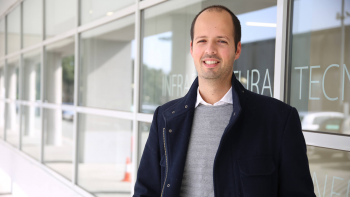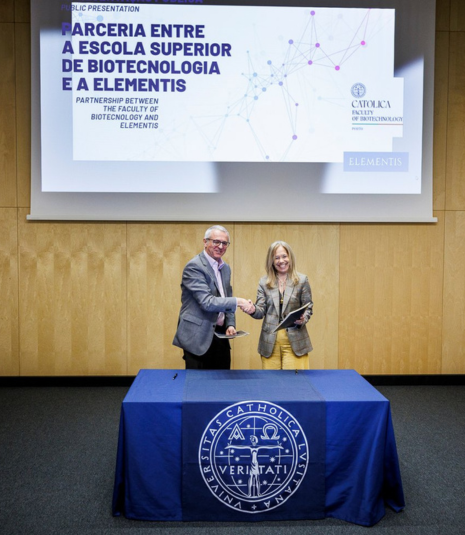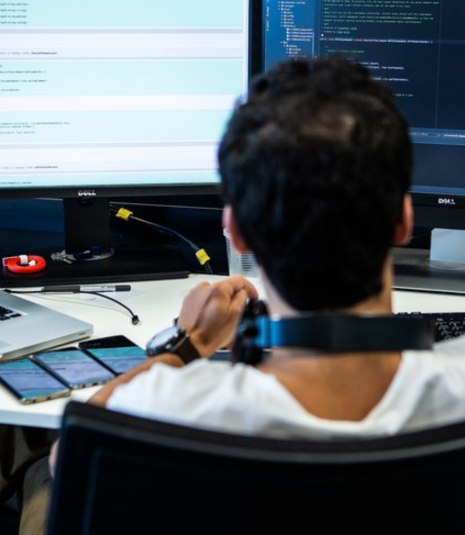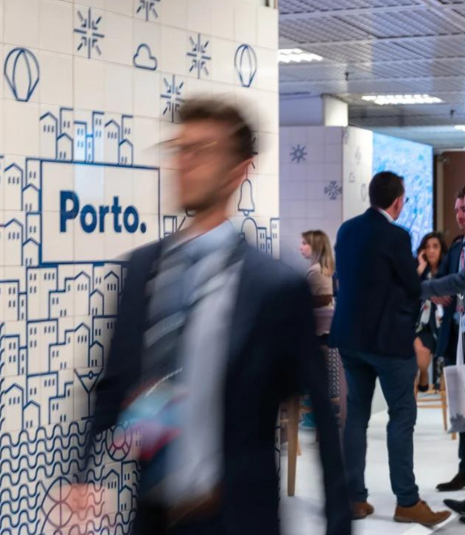Porto engineers sell technology patent to American giant

ECO
· 14 Dec 2021
Sold to an association that represents Google, Meta, Microsoft, Spotify or Sony, the technology created at INESC TEC promises to "revolutionize" smartwatches and disrupt the electronic industry.
Called C4MiR - Control module for multiple mixed-signal resources management, it promises to make smartwatches and smart bands faster and more reliable and is the first technology developed by the Institute for Systems and Computer Engineering, Technology and Science (INESC TEC) to have a patent commercialized at an international level.
ECO was told by the head of the licensing support service of this research institute linked to the University of Porto that the buyer was the Allied Security Trust (AST), based in the USA, which must now assign the rights of use to its associates, among which are some of the largest technology companies in the world, such as Google, Meta, Microsoft, Spotify, Phillips or Sony.
Without confirming the amounts involved in this operation, claiming to be confidential information, Daniel Marques Vasconcelos detailed that the "economic valuation process" was initiated along with the one related to protection, i.e., the deposit of the initial patent application. "The sale itself took months and was relatively simple. The great difficulty is to find and convince the prospective buyer that investing in the technology is a good deal", he added.
The family of patents sold was the exclusive property of INESC TEC and the University of Porto. Who were the co-inventors of this patent family? António José Salazar, who was a PhD student when the development began in 2014; and two INESC TEC researchers and professors from the Faculty of Engineering of the University of Porto (FEUP): José Machado da Silva and Miguel Velhote Correia.
"Revolutionizing" the wearables market
Whether they are watches, bracelets or virtual reality glasses, wearables have a large number of sensors that accurately measure data such as the speed and distance of a run, heart rate, calories burned or hours of sleep. However, these electronic components tend to suffer wear and tear associated with the use and the stresses they are subjected to during use, leading to calibration drifts and damages that compromise reliability and functionality.
Anticipating a "strong impact on the electronic industry", the creators argue that this Portuguese technology will allow the self-diagnosis of flaws in the various sensors that integrate these devices, such as poor electrode contact with the skin or circuit degradation, increasing reliability and ease of calibration and maintenance of this type of products in diverse environments and where there are no professionals to check and repair any anomalies.
The co-creator Miguel Velhote Correia assures that "C4MiR is ready to be incorporated into the development of new products and services, promoting change in the technology market, with direct impact on the lives of people, who will have access to more reliable, intelligent and affordable devices”. In addition, this technology can also be used during the final stages of electronic circuit manufacturing, reducing the time and cost of testing operations.
In this type of process, there is rarely a sale of patents, but rather a technology transfer through spin-offs, licensing for use, or contract research with companies. The most recent report published by the Association of European Science and Technology Transfer Professionals (ASTP) shows that the majority of European technology transfer offices (64%) reported not having made any patent sales last year.
For INESC TEC, this is even the first sale of a patent, which "comes to show that this is also a possible path, although rare". "Technology transfer is not a turnkey process. No matter how good the technology a research and development institute (R&D) or a university develops, the company that decides to buy it is unlikely to have all the information it needs to develop products and services that have the technology as a base", Daniel Marques Vasconcelos sustained.
The head of the licensing support service at the research institute in Porto, who was involved in the development of the StayAway Covid app, stressed that "there is always associated knowledge that is critical and difficult to transmit", which, he said, points to the "importance of trust and medium and long-term relationships for the systematic transfer of technology between academia and industry".




